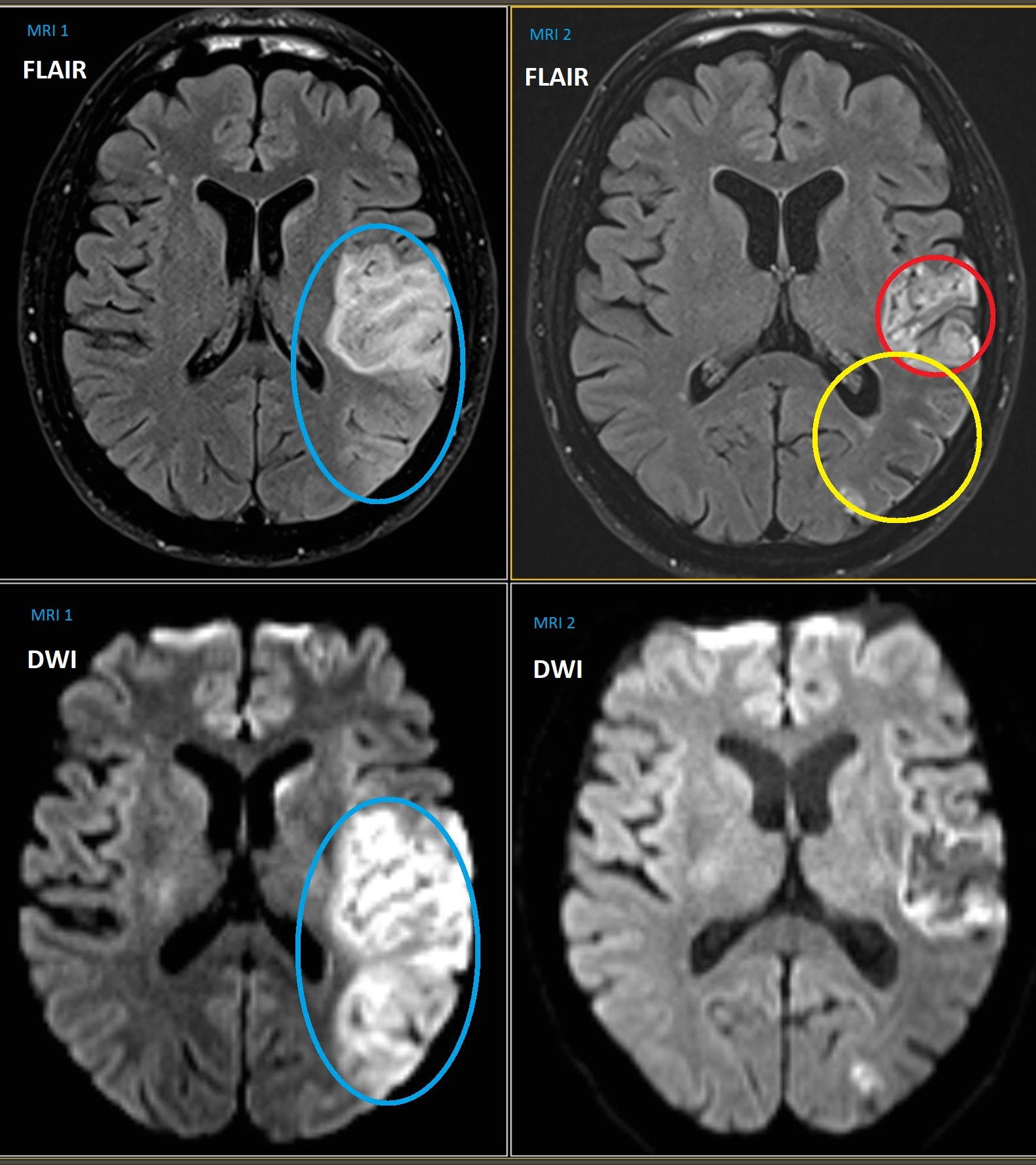The Importance Of Early Treatment Of Ischemic Strokes
A serious case of ischemic stroke was successfully treated at Apollonion Private Hospital by the stroke team headed by Dr. Lambrianidis Sakis in collaboration with the interventional neuroradiologist Dr. Tsouloupas Pavlos and nurse Charalambous Charalambos from the nursing team, which is completed by nurses Victoria Kalaitsidou and Georgiou Rogiros.

Ischemic stroke is caused by the sudden interruption of blood flow to the brain by a blockage of a cerebral vessel. For every minute without treatment, 2 million brain cells die, and for this reason time is of the utmost importance ("time is brain").
Incident presentation
A 64-year-old man, who 3 days ago suffered a myocardial infarction, which was successfully treated with percutaneous coronary intervention with the placement of an intracoronary stent by the interventional cardiology team of Apollonion Hospital, came by ambulance to the Emergency Department due to sudden weakness of the right upper and lower limbs, inability to produce and understand speech as well as turning the gaze to the left.
After the diagnostic tests, the diagnosis of ischemic stroke was made due to blockage of the middle cerebral artery on the left. Within 45 minutes of the patient's arrival at the hospital, after consultation with cardiologist Dr. Georgiou and the assessment of the risk of starting treatment with intravenous thrombolysis. At the same time, a mechanical thrombectomy was successfully performed by opening the vessel with the support and assistance of the staff of the hemodynamic laboratory and the intensive care unit of the hospital.
In the images below, the size of the ischemic infarct is shown in the initial phase, which without intervention would probably have remained unchanged, while the final form of the stroke can be seen on the right, clearly smaller than the initial one.
The patient, two weeks after the incident, left the hospital ambulatory, with full understanding of speech but with residual aphasia.
Unfortunately, time is running against us in ischemic strokes. By no means can we save the entire brain, but early intervention can make the difference between total disability and full functionality for the patient.
Apollonion Private Hospital is expected to operate in the coming months under the direction of Dr. Lambrianidis, the first private stroke treatment unit in Cyprus, where the possibility of full treatment of strokes according to international standards will be offered.

Serial MRIs of ischemic stroke after treatment with intravenous thrombolysis and mechanical thrombectomy depicting permanently damaged and partially salvaged brain tissue. The initial extent of ischemic damage is depicted in the top and bottom left images 7 days after the event (blue circle). Areas of permanent brain damage (red) and areas of partially reversible ischemic damage that have been salvaged (yellow) are shown in the upper right image 37 days after the event.

Written by Dr. Sakis Lambrianidis
Neurologist
